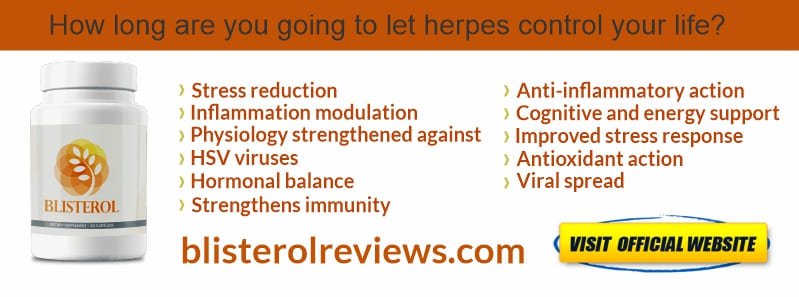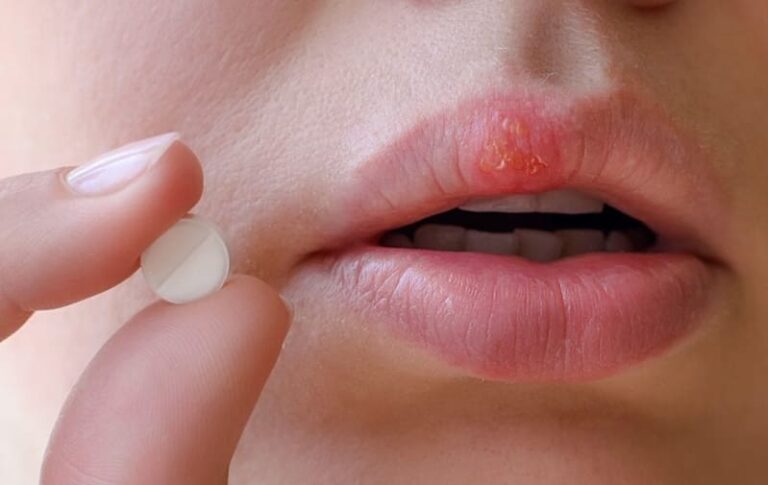Understanding the factors that trigger outbreaks can help reduce their frequency and severity. In this article, we will show you the top 9 triggers for herpes outbreaks.
Stress
Stress is one of the main triggers for herpes outbreaks. Emotionally stressful situations such as personal problems, work tensions, or traumatic events can weaken the immune system, making the body more susceptible to herpes outbreaks. Stress can also negatively affect hormonal balance, which can lead to virus activation.
Sun exposure
Prolonged exposure to sunlight, especially on the lips and genital area, can trigger herpes outbreaks. Ultraviolet radiation can damage the skin and weaken the local immune system, allowing the virus to multiply and cause lesions. It is important to protect yourself from direct sunlight by using sunscreen and avoiding prolonged sun exposure, especially during peak hours.
Physical trauma
Herpes can also be triggered by physical injuries to the affected area. Cuts, scratches, or other types of skin trauma can create an entry point for the virus and initiate an outbreak. It is essential to take precautions when engaging in activities that may cause skin damage, such as shaving or contact sports.
Weakened immune system
A weakened immune system is an open door for herpes outbreaks. Illnesses such as the flu, colds, or other viral infections can overload the immune system and allow the herpes virus to manifest. Additionally, chronic health conditions such as HIV/AIDS or cancer that suppress the immune system increase the risk of herpes outbreaks. It is essential to take care of one’s health, maintain a healthy lifestyle, and treat any underlying conditions.
Menstruation
Some women report that herpes outbreaks occur before, during, or after their menstrual period. Hormonal fluctuations that occur during the menstrual cycle can affect virus activity. It is important to be aware of this association and discuss with a doctor appropriate treatment options or preventive measures.
Fatigue and lack of sleep
Lack of adequate sleep and chronic fatigue can impair the immune system and increase the likelihood of herpes outbreaks. When the body is tired and unable to recover properly, its ability to fight off viral infection is compromised. It is crucial to prioritize proper rest and adopt healthy sleep practices to keep the immune system strong and reduce the occurrence of herpes outbreaks.
Poor nutrition
A diet lacking in essential nutrients can affect overall body health, including the ability to fight off infections. Some foods, such as processed foods, refined sugar, and foods high in arginine (an amino acid that can promote viral replication), can trigger herpes outbreaks.
On the other hand, foods rich in lysine, such as dairy products, fish, and legumes, can help prevent outbreaks as lysine inhibits virus replication. It is advisable to adopt a balanced, nutrient-rich diet to strengthen the immune system and reduce the recurrence of herpes outbreaks.
Unprotected sexual behavior
Genital herpes is primarily transmitted through unprotected sexual intercourse. Consistent condom use can significantly reduce the risk of virus transmission. It is essential to adopt safe and responsible sexual practices, such as using condoms and having open communication with your partner about herpes history.
Excessive alcohol and tobacco use
Excessive alcohol consumption and smoking can weaken the immune system, making the body more susceptible to herpes outbreaks. These habits can compromise overall body health and impair the ability to fight viral infections. Reducing or eliminating alcohol consumption and avoiding smoking can contribute to reducing herpes outbreaks.
Summary
Herpes outbreaks can be triggered by a variety of factors, including stress, sun exposure, physical trauma, weakened immune system, menstruation, fatigue, poor nutrition, unprotected sexual behavior, and excessive alcohol and tobacco use.
While it is not possible to completely eliminate the risk of herpes outbreaks, being aware of these triggers can help control and reduce the frequency and severity of outbreaks. It is crucial to adopt a healthy lifestyle, take care of your health, manage stress, and practice safe sexual health to minimize the impact of herpes on quality of life.
Consulting a doctor is essential for obtaining personalized and appropriate information for your specific case.




